**This post brought to you by a recent attempt to change someone’s mind using solid scientific findings.**
You, a well-trained and diligent scientist, have finally finished rigorously analyzing your data, writing up your results, and then re-analyzing your data according to the suggestions of peer reviewers, and have at last published your findings.
Tellin, an interested person/kitten, is going to try to debunk your findings.
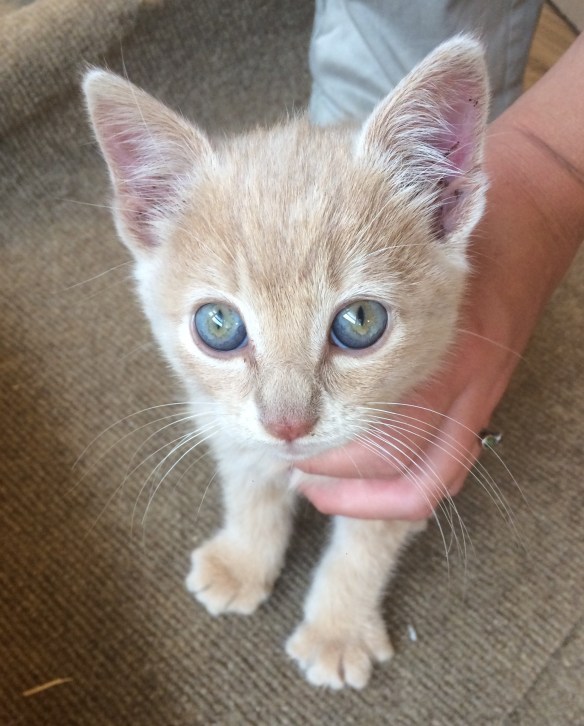
You don’t have a chance.
- Tellin doesn’t like your results. They seem wrong to him.

It’s stupid and I hate it.
Is it debunked? Sorry, Tellin, but your feelings are less reliable than science.
2. Tellin never saw anything like what your paper says in his life.
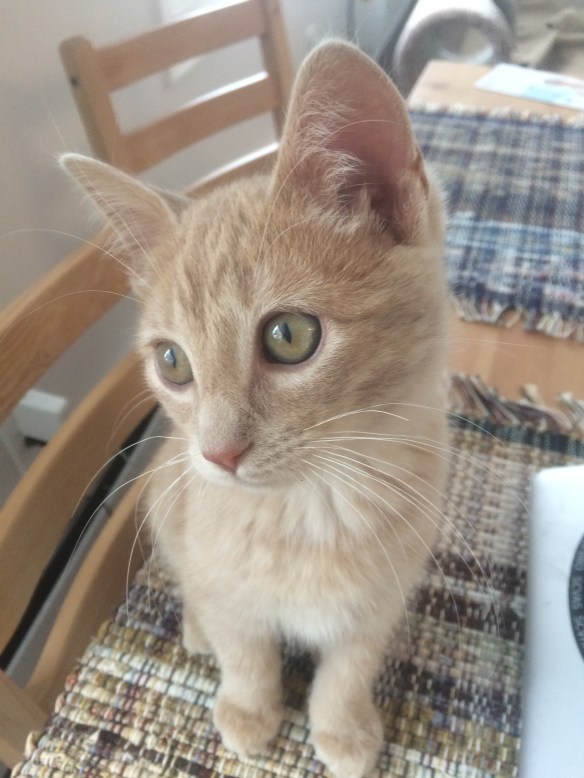
Not ever.
Is it debunked? We all used our personal experiences as ways to evaluate the world, but science—when done well—is more reliable at getting to the truth than any single person’s experience.
Also, Tellin, you’re a kitten. How much experience have you had?
3. Tellin found the word “theory” in your paper and notices that your results are “estimates” with “standard error”.

“Error” right there! You admit that you’re wrong!
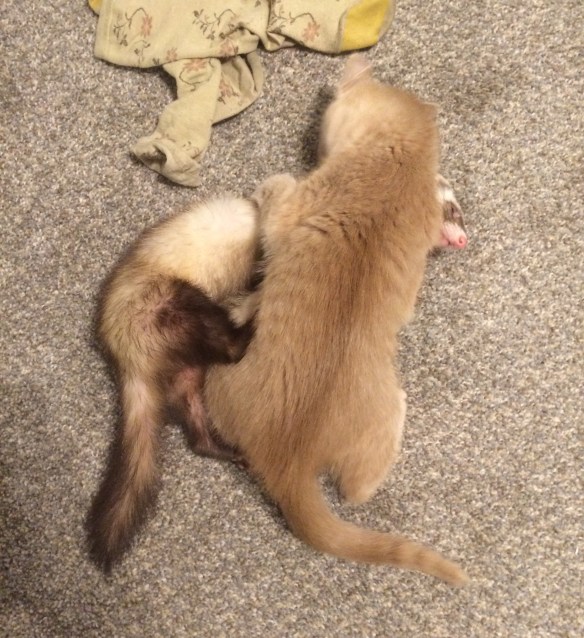
I have defeated you just like I have defeated this ferret!
Is it debunked? Theory, estimate, and error all mean somewhat different things in science than they do in day-to-day conversation. A scientific theory has the highest amount of scientific support possible (e.g., the theory of gravity). An estimate is what we call a conclusion from data when we can’t measure exactly what we’re interested in, but that doesn’t mean that it isn’t potentially quite accurate. We can tell how accurate it is using that standard error (or other measures of error): these don’t tell us how wrong we are, but rather, how large a range of values are plausible for our estimate. Far from telling us we’re wrong, they help us know exactly what we can be right about—and to not make claims outside of that.
4. Tellin found an article on NPR.org calling your paper into question!
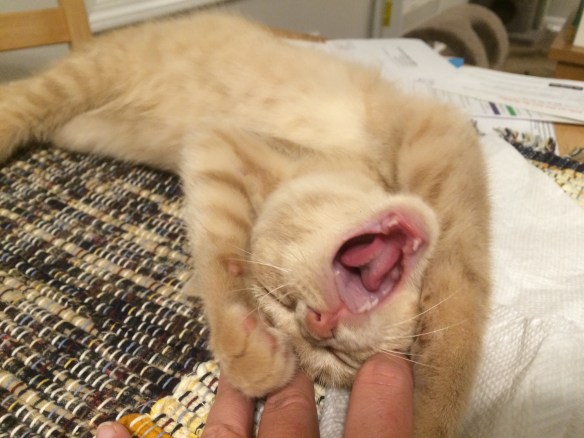
HAH!
Did you really, Tellin? Let me see.
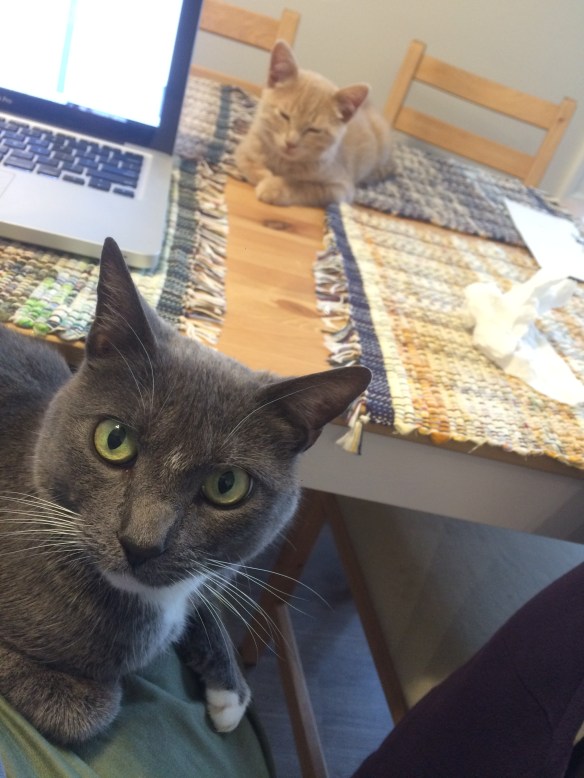
See! Reliable News Organization said it! Look at Reliable News Organization’s learned green eyes!
Okay, this is an opinion piece, Tellin. It’s a response to the earlier coverage of the paper. The author isn’t a scientist, they’re just saying they doubt the paper for the same reasons you already tried—they don’t like it, they’ve never seen it themselves. This piece got published because journalists like to have “both sides,” but they don’t have any scientific critiques of the research.

Reliable News Organization and I have seen the light, and the light says your paper is the worst.
Is it debunked? No.
5. Tellin found an article called “DEBUNKED” and it has bullet points about why your statistics are wrong and a list of 14 references at the end. Fourteen!
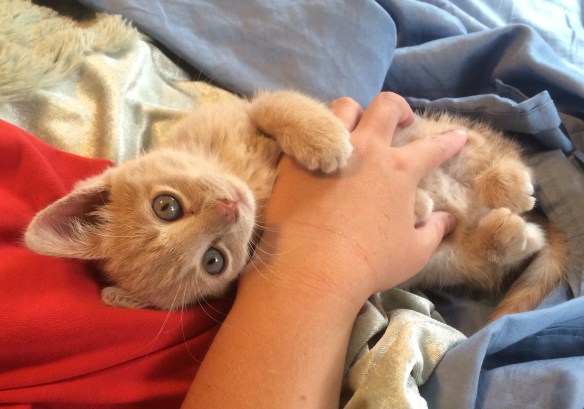
I wrap myself in the cozy confidence that this article looks legitimate
I’ll give it to you, Tellin, this one’s trickier. It looks like a well-sourced scientific critique. However, everything they bring up in those bullet points is something I considered in the paper, and took into account when doing my analysis (except bullet point #3, which is a misunderstanding of the kind of statistical model I used). This would be hard for you to tell without scientific training, though! This is why everyone should have a bit of scientific literacy, and why peer review—where other scientists make sure the science is solid—is so important.

But the sources…
This one you could figure out if you looked closely. See how the sources are all news articles, like that NPR piece you found? If you click through you’ll see they’re all opinion pieces too. You want sources to be as close to the data as possible; you want them to be peer-reviewed scientific papers, not opinions.
Scientific findings can be overturned by later research—this is part of the process of science—but that isn’t what you’ve found here.
Is it debunked? Still no.
6. Tellin still hates it anyway and his ferret friends agree with him so you can’t ever convince him so there.
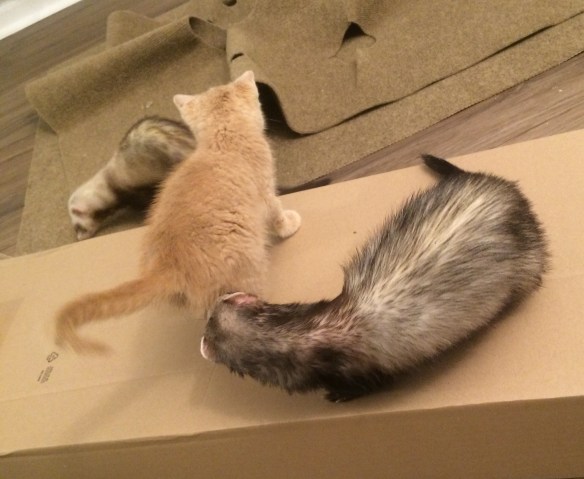
Hmph.
Sigh.
Okay, Tellin.
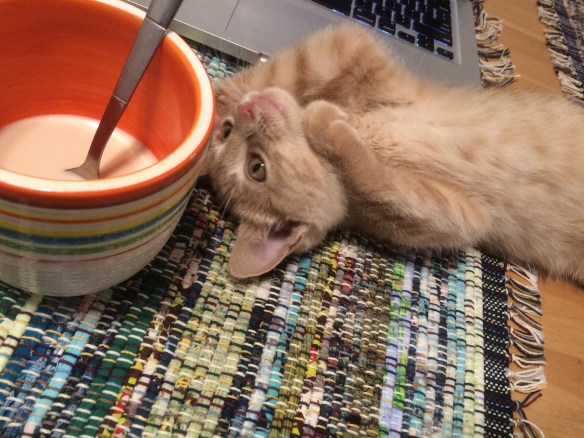
I will spill tea on your computer so you can’t publish any more nonsense.

i can tell that tellin never heard of the miraculous, then a bowl of his favorite chow arrives, and it isn’t meal time, and suddenly what science can’t explain becomes real, and tellin becomes real confused, that’s tellin you!!, have a great day
Magic kitten gets older and younger during the course of one debate! Love the yawn!
Kitten operates on Bayesian theory. Kitten can’t process data to conclusions by falsification of hypotheses, except in a survival neutral situation. Kitten comes to problem equipped by natural selection with a prior distribution, and constructs the posterior, drawing working conclusions based on very small sample sizes, perhaps n=1. There is no truth in kitten’s world, only tree, mouse, bird, wool ball, ferret … Kitten honestly could not care less what your p value is.
I should add, I don’t really understand Bayesian theory, but I chat a lot to statisticians over coffee. I also don’t really know much about kittens, but I have a cute dog, right?
:-)
Cool post as always.
Ha! Yes, kitten could definitely just be a Bayesian with very strong priors.
You do have a cute dog. He looks very soft.
Ah. He’s been shorn since I last drew him. He’s much smarter in appearance if still soft in the head.
Your post made me think how scientific concepts play out among animals. Maybe, the germline through natural selection runs on conventional statistics, running each experiment many many times albeit under similar or varying conditions, so statistical power is key. The somatic body runs on Bayesian stats, imprinted with strong priors by evolution, making survival choices on tiny samples.
I hope you are well and far from the wildfires.
What a sweetie, so much fun!
Also I cited this post teaching masters students today.